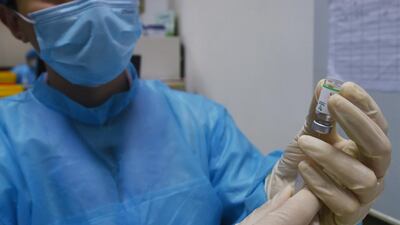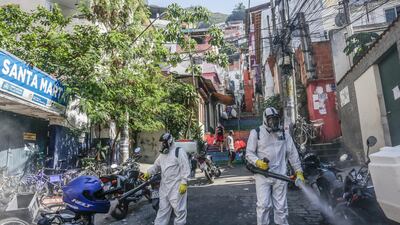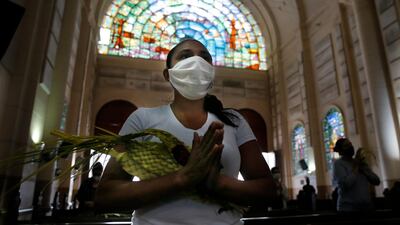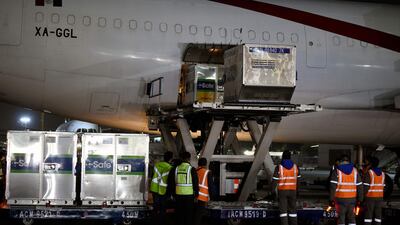The world’s stockpile of Covid-19 vaccines could be ineffective against new variants in less than a year, epidemiologists said.
A survey by the People’s Vaccine Alliance, released on Tuesday, also revealed concern about new strains “shattering” existing protection against the disease if the virus runs rampant in poorer nations.
Of the 77 epidemiologists surveyed, two thirds believed the world had a year or less to modify existing vaccines to fight new variants.
The remaining third believed new vaccines would be needed in only nine months, while 90 per cent of those surveyed said low rates of inoculation in parts of the world would create more strains of coronavirus.
Vaccines appear to be at least partially effective against some mutations in the virus, but there is still concern over variants.
One study published in the New England Journal of Medicine found the AstraZeneca-Oxford vaccine was only 10 per cent effective against mild to moderate illness from the variant identified in South Africa.
Devi Sridhar, professor of global public health at the University of Edinburgh, said the level of virus in circulation would determine the effectiveness of vaccines.
“As we’ve learnt, viruses don’t care about borders,” Prof Sridhar said. “We have to vaccinate as many people as possible, everywhere in the world, as quickly as possible.
“Why wait and watch instead of getting ahead of this?”
Gregg Gonsalves, associate professor of epidemiology at Yale University, echoed the urgency of global protection against Covid-19.
“Unless we vaccinate the world, we leave the playing field open to more and more mutations, which could churn out variants that could evade our current vaccines and require booster shots to deal with them,” Dr Gonsalves said.
The People’s Vaccine Alliance, a coalition of organisations advocating free vaccines, estimated only 10 per cent of the population of developing nations would be inoculated this year.
The alliance called for intellectual property rights on Covid-19 vaccines to be removed to increase global coverage.
Oxfam said even people already inoculated could be at risk from new variants of the virus.
“In many rich nations vaccinated people are starting to feel safer, but unless we vaccinate all nations there is a huge risk that the protection offered by vaccines will be shattered by fresh mutations,” the charity’s health policy manager, Anna Marriott, said.











